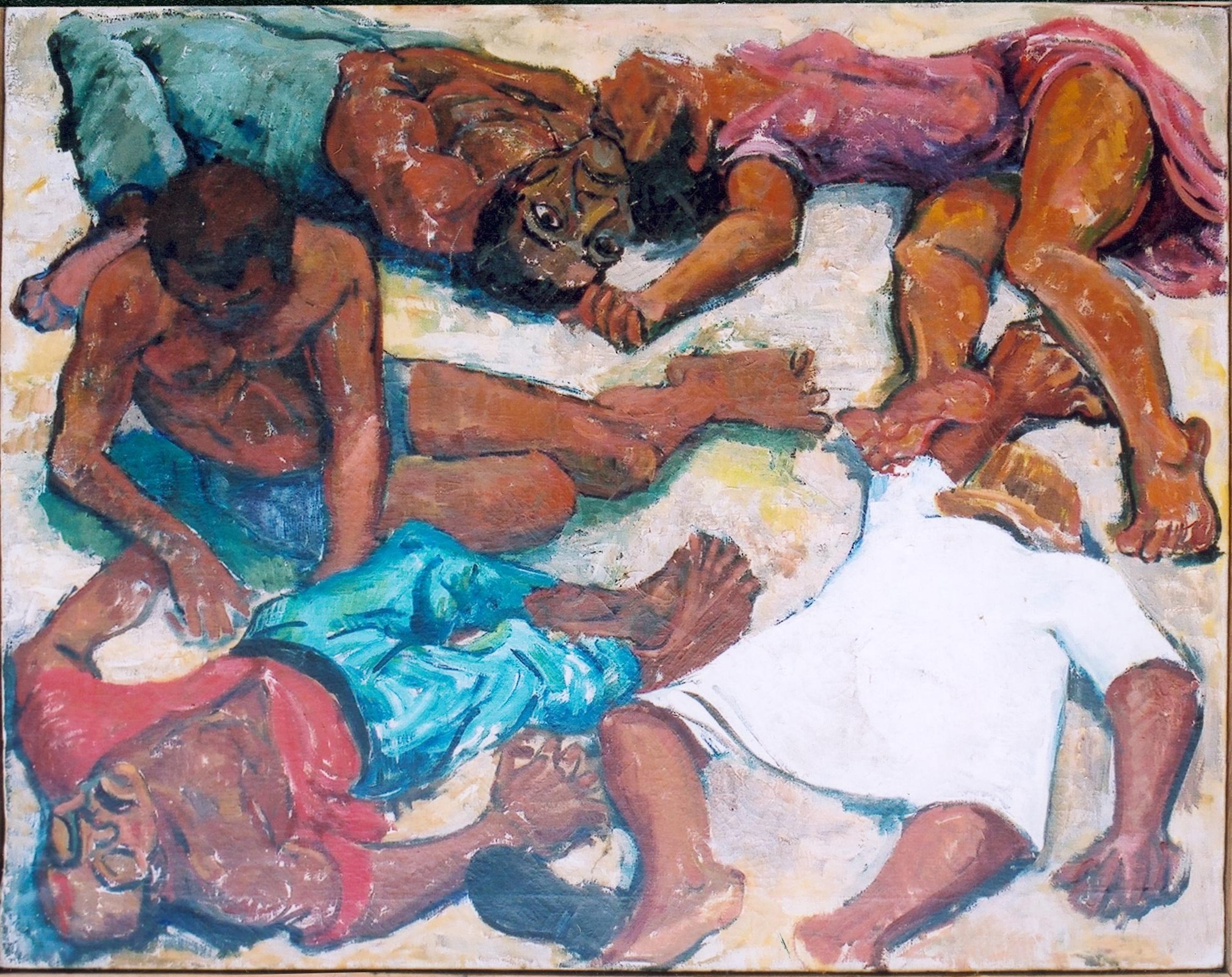The Sharpeville Massacre of 21 March 1960, which left 69 unarmed black South Africans dead and more than 180 injured, drew the world’s attention to the evil of the apartheid system practiced within South Africa.
Pass Laws

Painting, The Sharpeville Massacre, by Godfrey Rubens.
The protest at Sharpeville, a black township about forty miles south of Johannesburg, on 21 March 1960 was part of a campaign against the so-called Pass Laws. The law required South Africa’s black population to carry around at all times an identity book that contained pertinent information about themselves, such as name, address, employer details, and even their tax code. Those caught without the books were liable to immediate arrest.
The demonstrations against the Pass Laws were organised and led by the PAC (Pan-Africanist Congress), an off-shoot of the ANC (African National Congress). The march on Sharpeville was to be the first in a series of non-violent actions due to take place over a five-day period. Participants on the march were to present themselves at the police station at Sharpeville without their passbooks and demand to be arrested. If enough blacks were arrested and kept from going to work, the country’s economy would collapse. That, at least, was the theory according to Robert Sobukwe, leader of PAC.
Sobukwe fully informed the police beforehand of the Sharpeville demonstration, emphasizing the non-violent intention of the marchers.
Down with the passes
And so on the morning of 21 March 1960, a Monday, 5 to 7,000 people (although cited numbers vary) converged on the police station at Sharpeville. Many, according to witnesses, were cajoled by PAC members who threatened to burn their passes unless they joined the march. Nonetheless, most joined the demonstration willingly and the march was good-natured, with the unarmed marchers singing songs, dancing and chanting ‘Down with the passes’.
Three hundred police officers with loaded guns were waiting for them at the Sharpeville police station, many being reinforcements especially drafted in, some sitting on top of armoured cars.
They must learn their lessons
At about 1.15, a policeman was knocked down and the crowd surged. The police later claimed that the demonstrators had started throwing stones at them but none of the journalists present, of whom there were many, could confirm this. The police opened fire straight into the mass of people in front of them – there was no warning, no announcement, no warning shots. The shooting lasted no more than two minutes, but armed with sub-machine guns, the police killed sixty-nine. Most of the victims, it was later revealed, were found to have been shot in the back. One police officer infamously said, ‘If they do these things, they must learn their lessons the hard way.’
Unlawful Organizations
The Sharpeville Massacre prompted the ANC leaders to call on black people to make a public display of burning the hated passbooks. The outbreak of demonstrations caused further violence and the government reacted by declaring a state of emergency. Meetings of more than ten persons were prohibited, and 18,000 arrests were made including leaders of the ANC and PAC. Both organisations were initially banned, then outlawed altogether with the introduction on 7 April of the Unlawful Organizations Act.
When, six months later, victims filed claims against the government, the government, whose president was H. F. Verwoerd, responded by rushing through the Indemnity Act which rendered all police officers immune from prosecution for their part in the Sharpeville Massacre or subsequent demonstrations.
Thirty-six years later, on 10 December 1996, following the end of the apartheid era, the new South African president, Nelson Mandela, signed the new national constitution into law – the venue he chose was Sharpeville.
Rupert Colley.